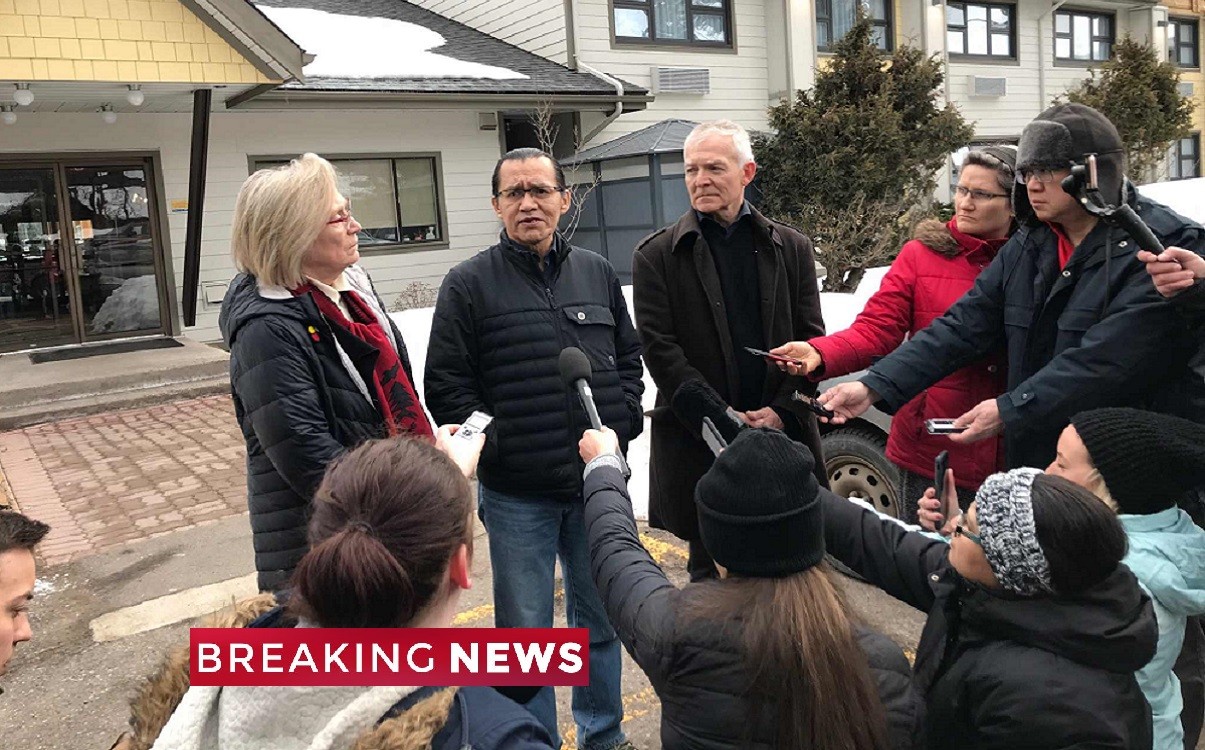Minister Bennett Resolves Crisis, But The Real Work Starts For The Wet’suwet’en.
- TDS News
- Breaking News
- Indigenous
- March 1, 2020

A Wet’suwet’en hereditary chief, the Federal Crown-Indigenous Relations Minister Carolyn Bennett and the British Columbia Indigenous Relations Minister Scott Fraser have reached a proposed arrangement in discussing a pipeline dispute that has prompted solidarity protests across Canada in recent weeks. They would not give details on the proposed arrangement, saying it first has to be reviewed by the Wet’suwet’en people.
This conflict was created a year ago by the provincial NDP government in B.C. with their inability to sit down all concerned parties of the Wet’suwet’en. This eventually forced Prime Minister Justin Trudeau to intervene. The federal government was able to resolve the crisis through discussion has born fruit with a negotiated settlement without violence or a greater enlargement of the conflict.
Chief Woos, one of the Wet’suwet’en hereditary leaders, said the proposal represents an important milestone. Woos and other hereditary chiefs have been questioned by other Wet’suwet’en hereditary chiefs concerning their authority in the creation of this crisis.
The Wet’suwet’en have a semi-functioning traditional hereditary chief system and a functioning democratically elected band councils. Almost all of the councils have approved the Coastal GasLink pipeline, but some of the Wet’suwet’en hereditary chiefs oppose it running through their traditional territory.
Bennett said the past few days of negotiations had been about learning and humility.
Federal Minister Marc Miller said, “ today’s proposed arrangement with Wet’suwet’en hereditary chiefs, British Columbia and Canada is a testament to the importance of respectful dialogue and peaceful resolution.”
This crisis has also been a proxy war used by environmentalists, some Indigenous groups and corporations to advance their interests in the larger debate about the environment and jobs.
In a 1997 Supreme Court ruling the court said that Wet’suwet’en sovereignty had not been extinguished in Canada, but they did not say who was the specific representative of the Wet’suwet’en, the hereditary chiefs or the elected chiefs. Both groups had participated in the court case.
It has not been reported if elected chiefs have been included in the negotiations. If governments have ignored the elected chiefs the potential for a greater crisis later is created. There is no word from Mohawk communities if their protests will now stop that the principal reason for the protests has come to a resolution.








